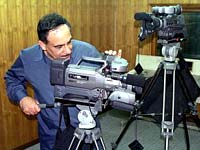 The Management of Social Transformations (MOST) Program, which is part of the Social and Human Sciences Sector (SHS) of UNESCO, is the first intergovernmental initiative launched within the United Nations System, and was created to “manage social transformation”.From 1994 to 2003, the program focused on international research. The most recent initiative (2004-2013) focuses primarily on the
The Management of Social Transformations (MOST) Program, which is part of the Social and Human Sciences Sector (SHS) of UNESCO, is the first intergovernmental initiative launched within the United Nations System, and was created to “manage social transformation”.From 1994 to 2003, the program focused on international research. The most recent initiative (2004-2013) focuses primarily on the  need to link international public action networks to those of researchers and experts. The goal is to make social science research relevant to concrete political issues. The program works in close relationship with National Committees established in 63 countries.
need to link international public action networks to those of researchers and experts. The goal is to make social science research relevant to concrete political issues. The program works in close relationship with National Committees established in 63 countries.MOST promotes a culture of evidence-based policy-making – nationally, regionally and internationally. The initiative seeks new ways to widely distribute information pertinent to target groups including social affairs ministers, regional and local authorities, the media, grass-roots organizations, civil society and the academic community. A series of services and resources was developed to meet their needs.
Launched at the end of spring 2005, the MOST-2 Digital Library, is a clearing house for the program’s publications. A multilingual search engine makes it easy to access documents.
More about MOST, Phase II: Bridging research and policy-making
About Growing Up In Cities, a UNESCO/MOST project
Events:
MOST-UNESCO Summer School for Latin America and the Caribbean , Salvador de Bahía, Brazil, 26 February to 2 March 2007
This Summer School aims to bring together young researchers, scholars and students following a Masters degree or a PhD from the region. The program will concentrate on the following themes: poverty, social management and local development.
